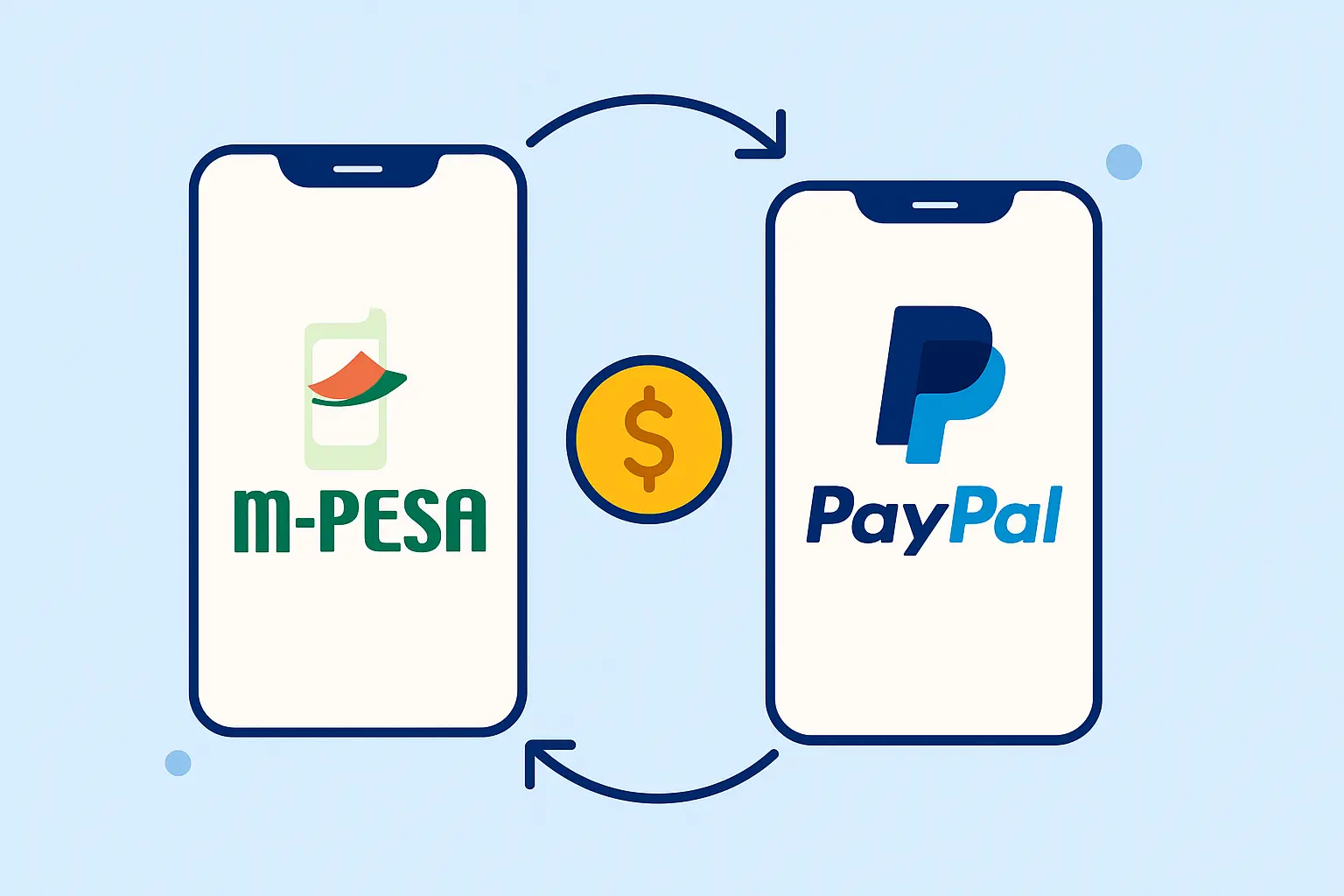A new era of global payments is here for Kenyan freelancers, creators, and digital businesses. On July 29, 2025, Safaricom officially announced a major partnership with PayPal, giving users the ability to link their M-PESA wallets directly to their PayPal accounts. This move opens up seamless, two-way transfers—finally connecting Kenya’s most widely used financial tool to the world’s largest online payments platform.
No More Middlemen or Delays
Until now, moving funds between PayPal and M-PESA often meant delays, high withdrawal fees, and third-party workarounds. The new integration changes that. Kenyan users can now receive PayPal funds directly into their M-PESA wallets, convert the currency automatically, and use the money immediately—all without leaving the app.
The feature is housed inside a mini-app within the M-PESA Super App, offering real-time, secure transfers. It works both ways too: users can top up their PayPal balance using M-PESA. This streamlining is already being hailed as a huge win for Kenya’s gig economy.
What This Means for Freelancers and Businesses
Kenya has the largest number of freelancers in Africa, according to The East African. And for many of them, PayPal is the default method for receiving international payments from platforms like Fiverr, Upwork, and Shopify.
Now, a freelance graphic designer in Nairobi or a social media manager in Nakuru can get paid through PayPal and access their funds instantly via M-PESA. That’s a game-changer.
According to TechAfrica News, the move is expected to benefit over 35 million active M-PESA users and nearly 2 million micro-businesses in Kenya.
Safaricom and PayPal Are Thinking Bigger
Esther Waititu, Safaricom’s Chief Financial Services Officer, called the integration a “bold step toward safe, secure, and inclusive digital finance.” In an interview with ITWeb Africa, she said this partnership isn’t just about faster transactions—it’s about giving everyday Kenyans access to the global economy.
On PayPal’s side, Otto Williams, Vice President of Strategic Partnerships, emphasized that the goal is to “bridge global commerce with local financial ecosystems,” helping more Africans participate in global trade, work, and commerce.
A Sign of What’s Coming Next?
Kenya is already known as one of the most advanced mobile money economies in the world, with M-PESA processing over $1 billion in daily transactions. Meanwhile, PayPal serves over 400 million users in 200+ markets.
This partnership marks one of the most important fintech collaborations in Africa to date—and it might just be the beginning. Safaricom has hinted at plans to expand this integration to other M-PESA markets like Ghana, Tanzania, and Mozambique.
As cross-border payments become more important for African entrepreneurs, partnerships like this are setting the standard for what financial inclusion should actually look like.
Bottom Line
Getting paid globally just got easier for millions of Kenyans. Whether you’re an online retailer, a content creator, or a remote consultant, the ability to move money between PayPal and M-PESA—without hassle—is more than convenient. It’s empowering.
And for a continent that’s quickly becoming the epicenter of mobile-first innovation, this integration between Safaricom and PayPal signals something even bigger: Africa isn’t adapting to the future of money. It’s helping define it.
